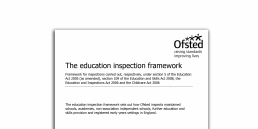“A chance to press the reset button”
How schools are seeing Covid-19 as an opportunity not a disaster
After a month back in schools, one of B11’s consultants, Zarina Connolly, reflects on the positivity she has witnessed during September.
I must admit I had a number of preconceptions when my work as a school improvement adviser resumed a few weeks ago. I expected to see and feel schools wracked with anxiety and confusion. To be honest, the shambles made of advice and guidance to schools and not mentioning the exams fiasco, one wouldn’t be surprised. However, nothing could be further from the truth!
Taking back control
In all the schools I’ve visited, there has been an air of calmness and security. A stark contrast to the impression whipped up by the media. Far from a state of chaos and uncertainty, schools have taken back control. One member of staff told me, ‘it was a chance to press the reset button for our school’.
One thing good headteachers are excellent at, is putting together well thought-out plans and systems. The risk assessments have provided an opportunity for schools to rethink how they do things – not just because Public Health England requires them to do so. For example, staggered starts to the school day, separate entrances and new protocols for entering the classrooms, have all allowed teachers to reinforce expectations and reset policy. Pupils, far from railing against extra restrictions and rules, have welcomed the order and lack of wavy lines in behaviour policy. Could Covid-19 have accelerated the maturity of young people by any chance?
New systems, new life
For headteachers, these new systems have brought a new lease of life for schools. Ironically, Covid-19 has allowed them the opportunity to by-pass the long and drawn out consultation process to implement changes to the school day and other such alterations. They have been given the professional autonomy to make the necessary changes they see fit. One headteacher said, ‘I’ve been wanting to do this for a long time but I felt the process was going to be too painful’. In one month, the policy of later starts for older pupils has been implemented. Teachers and pupils already report huge benefits to punctuality and engagement. Research into the sleeping needs and optimum learning times for teenagers have been around a long time but many schools had been stuck in a never ending ‘we’ve always done it like this’ or ‘it’s too much effort’ mentality.
I am still staggered by the lack of pupil reaction when an adult walks into the classroom with a mask or full PPE. The young accept the new normal; they adapt. In fact, as educationalists, we’ve always known this. Children take their cues from adults. If the adults aren’t stressed, they won’t be. I’ve had a number of conversations with members of staff during my visits. Almost always, staff have told me that they are surprised about how everyone has adapted to the new way of working. For many, their joy of returning to the classroom and getting back to what they do best has far outweighed the anxiety about Covid-19 and its risks in the classroom. I’ve been so impressed.
The pupils I’ve spoken with during my visits say that they were keen to get back to school. It’s clear that it is not just because they get to see their mates regularly but because school is the safe, reliable and ordered environment they crave. Pupils told me that they valued the support they received from teachers and praised them for going the extra mile in difficult circumstances. Interestingly, they note that teachers are way more attentive and alert to their emotional needs than they perhaps were previously.
Less fire-fighting
The time and effort given by pastoral teams during lockdown to ensure vulnerable pupils and their families were safe has paid off. The work to keep pupils safe has been ‘belts and braces’. This has continued when schools have reopened. The regular phone calls, the door step welfare visits, the food parcels and general support were a valued lifeline for many homes. Families have rebooted their relationships with schools and vice-versa. I hear schools report that vulnerable pupils’ attendance has improved dramatically compared to pre-Covid times. Behaviour in all the schools I work with report fewer incidents compared to this time last year. This has allowed staff to put in more preventative work with pupils which will surely have huge long-term benefits. The secondary schools say that their work is less fire-fighting and more proactive.
Transition work between primary and secondary schools was always going to be a challenge during lockdown. Schools often rose to this by having virtual induction days and virtual visits. Gathering the detailed information about individual pupils could only be undertaken through carefully planned Zoom meetings. Year 7’s have generally settled in well as a result, the schools tell me. The pupils say that they feel safe and secure. They like their ‘bubbles’. Headteachers say that in the future they are likely to strengthen their transition work through more frequent and targeted activities.
Opportunities at hand
Covid-19 strengthened curriculum development in many schools. Good heads of subject have taken the opportunity during lockdown to unpick their curriculums and refine their content and sequencing. I’ve met subject leaders who are newly rejuvenated by the reading and research they’ve undertaken about their subject. One teacher said, ‘There’s a buzz around our department’. It’s as if some teachers have grasped the opportunity to refocus and run with it. It reminds me of the time I decided to do my Masters degree at the same time as taking on a new post as head of History. Far from being overwhelmed with the workload, I recall being excited by the new learning, the opportunities to teach more effectively and know my subject in depth. I believe all teachers want to get back to, or hold on to, that feeling of excitement about teaching. This is what I’ve witnessed over the last few weeks.
Leaders have grasped the opportunities afforded by distance learning for staff and pupils even when school has reopened. Webinars delivered by leaders about safeguarding, for example, have meant that clear messages and polices were communicated prior to the school reopening. Many school leaders are devising a blended curriculum and a staff development programme. What became clear during lockdown, is that online learning can work. For staff, it offers flexibility; not all meetings have to take place on site and collaboration can work virtually. For many pupils, and this includes pupils with SEN, live and recorded lessons have been successful. Teachers who have taken on board the possibilities of online learning are seeing how it’s affecting pupils’ learning skills positively. The well-researched ‘flip learning’ approach is proving the way forward for some school curriculums. It seems so obvious now. Had schools adopted and embedded this approach previously, they may have been pandemic proof! The national tutoring programme can also be used by schools creatively and flexibly, taking advantage of what virtual teaching can offer pupils.
Of course, the positive picture I’m painting about schools does not take away the genuine challenges facing headteachers at the moment. Covid-19 has, up and down the country, exposed the digital and social divide even further. Disadvantaged pupils continue to lag behind. The urgency for more money and support for schools to meet their needs is acute. But the pandemic experience also offers opportunities for schools to do things differently. Schools are already learning the lessons from the period of school closure. Their time to reflect has led to new ways of working; ‘We don’t need to keep doing the same thing and getting the same results anymore’, said one headteacher. I feel a renewed sense of hope and optimism for the future in schools- long may it continue!



